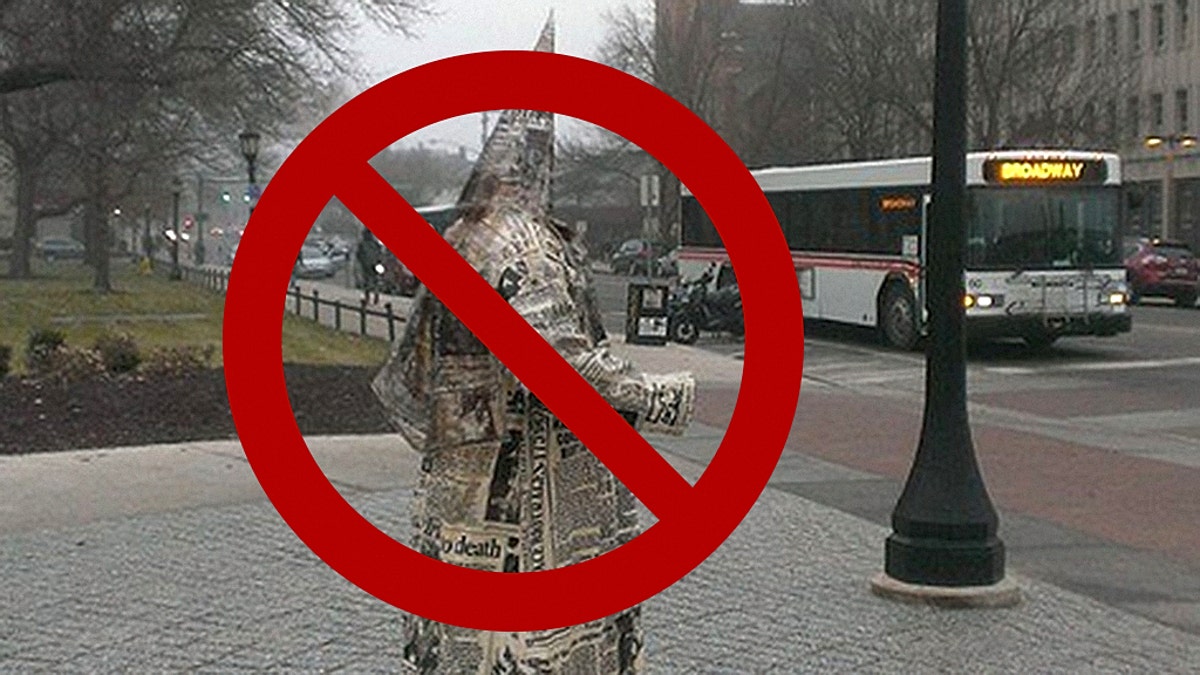
Art like this one at the University of Iowa has been banned, removed, revised and ultimately censored for a variety of reasons. (Serhat Tanyolacar)
Several colleges and universities have lately been anything but "safe spaces" for freedom of expression – especially in the form of artwork.
To that end, the Foundation for Individual Rights in Education claims censorship in higher education knows no bounds, and the organization has set out to prove it. Both public and private schools, all across the political spectrum, have taken part in censorship, FIRE says, despite a majority of legal precedence in favor of freedom of expression. And by censoring artwork on college campuses, school officials may be sending unintended messages to the artist.
“Attempts to censor expression often only ensure that more people will ultimately see it,” FIRE wrote in a report titled “One Man’s Vulgarity: Art Censorship on American Campuses.”
Here are some of the more egregious incidents, as noted by FIRE:
Salem State University
The 2016 election allegedly "triggered" a lot of college students on campuses across the nation, including some at Massachusetts’ Salem State University, who were upset about an illustration by artist Garry Harley. Harley’s painting depicted members of the Ku Klux Klan and sought to compare the Trump campaign to historical efforts of minority oppression. School officials responded by first covering up the glass doors leading to the illustration, then posting a "trigger warning" outside, before temporarily shutting down the exhibit. Salem State eventually reopened the display but covered the KKK image with a black drape so students wouldn’t accidently see it.
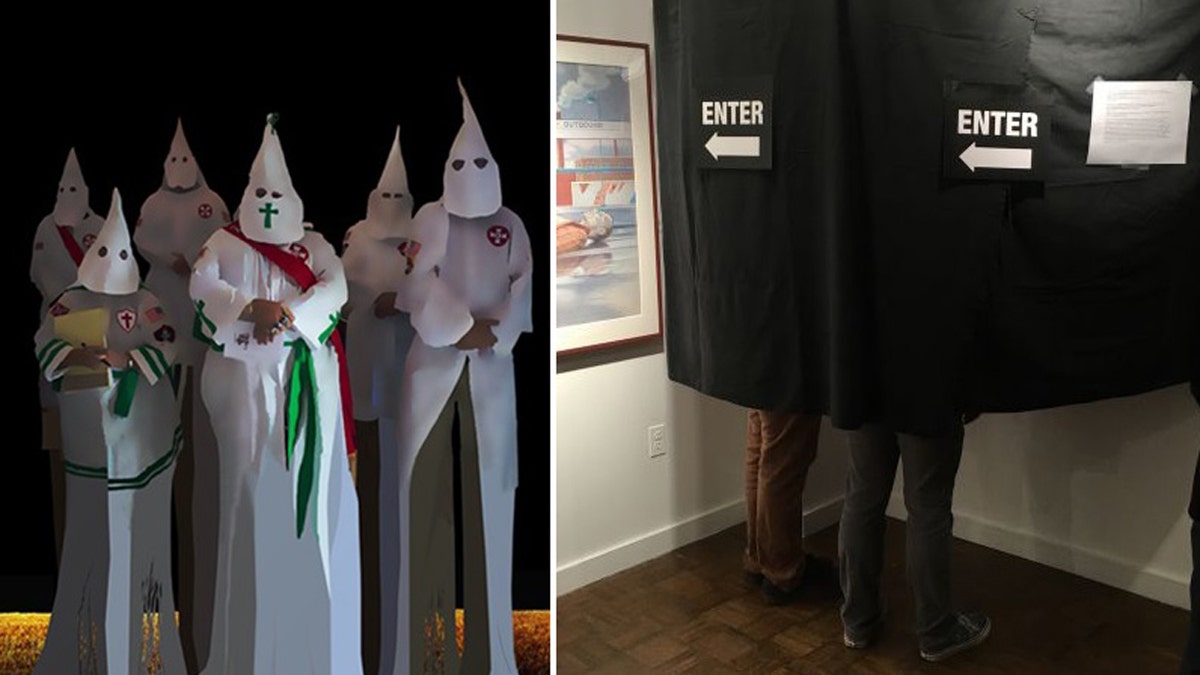
The piece titled "State of the Union" was eventually pushed to behind a black drape in the exhibit as school officials at Salem State University compromised. (Garry Harley via Inside Higher Ed)
Pennsylvania State University
In 2006, Pennsylvania State University canceled the work of a student whose 10-piece senior art exhibit, “Portraits of Terror,” focused on Islamic extremism and criticized violence and bigotry against Israel. Officials told Joshua Stulman his exhibit was canceled because it “did not promote cultural diversity” or “opportunities for democratic dialogue.” One year later, Stulman filed a lawsuit against Penn State for violating his rights to freedom of speech and expression. The suit was eventually settled.
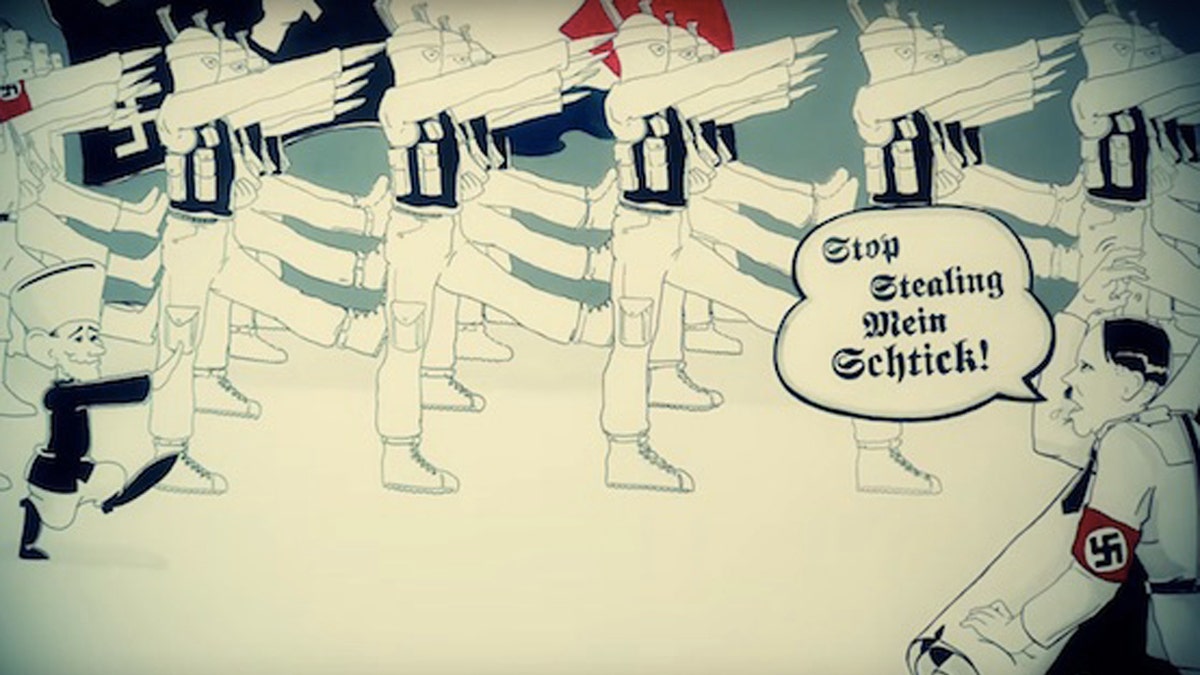
A Penn State student's art display titled "Portraits of Terror" was banned before it ever went up on campus. (Joshua Stulman)
Brandeis University
Following the Penn State incident, a student at Brandeis University had an art display titled “Voices of Palestine” that included a girl lying in a pool of blood. The display was removed after four days, however, because it was “one-sided.” School officials later apologized, saying they “committed a serious error.”
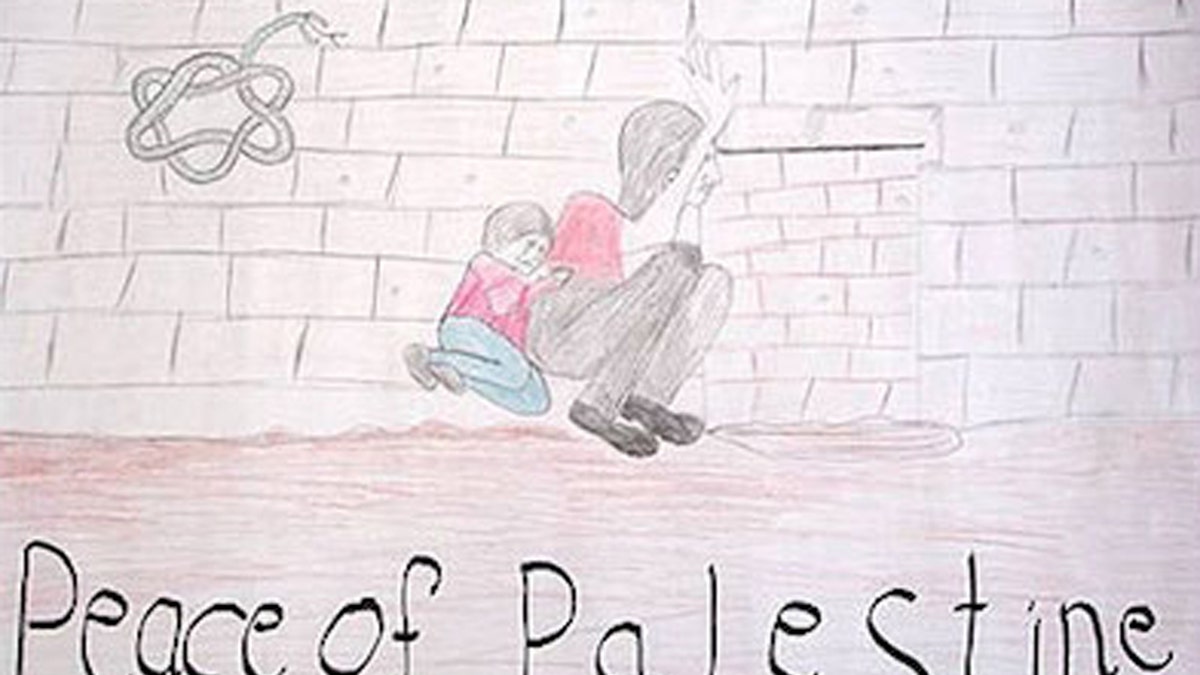
A student at Brandeis University had her art display titled "Voices of Palestine" removed from the library before school officials apologized. (Samah al-Azza via Boston Globe)
University of Iowa
University of Iowa officials removed artwork in 2014 from an assistant professor, Serhat Tanyolacar, that he said was intended to bring awareness to racial violence. But the Ku Klux Klan hood covered by newspapers featuring stories about Michael Brown, Eric Garner and Black Lives Matter was initially seen as “divisive” and “intolerant.” It was removed because it “immediately caused black students and community members to feel terrorized and to fear for their safety,” according to an email sent from President Sally Mason to the student body.
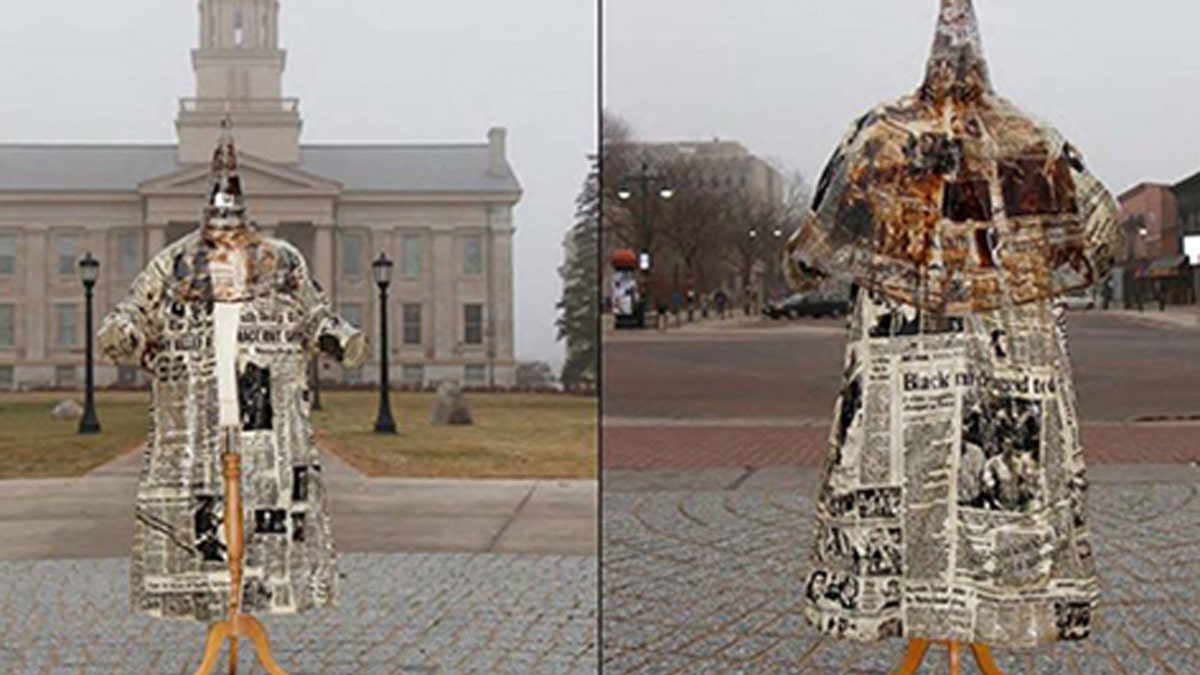
A piece titled "In Their Shoes" was banned from campus because it made students feel "terrorized." (Serhat Tanyolacar)
Polk State College
That same professor, teaching part-time at Florida’s Polk State College, could not feature his artwork this year in a faculty art exhibit because it was reportedly too contentious. Tanyolacar’s piece featured Trump and other political figures engaging in sexual activity. The administration at Polk State deemed his piece “Death of Innocence” as “too controversial to display” because the school hosts high school students.
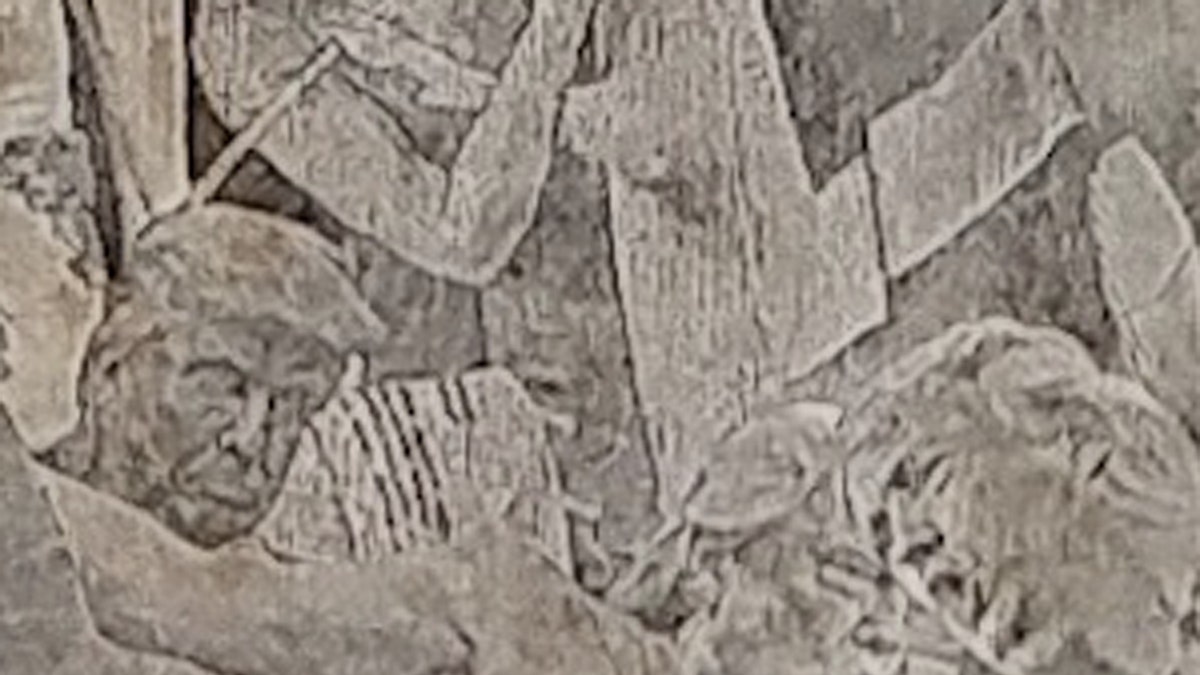
A part-time professor's artwork titled "Death of Innocence" was banned for being too controversial. It featured President Trump and other politicians committing sexual acts. (Serhat Tanyolacar)
Gainesville State College
In another piece featuring KKK members, this time as part of the Confederate flag, a professor at Gainesville State College in Georgia had his artwork censored without his consent or prior knowledge because the college president said it was “perceived as aggressively hostile” for featuring “the graphic depiction of a lynching.”
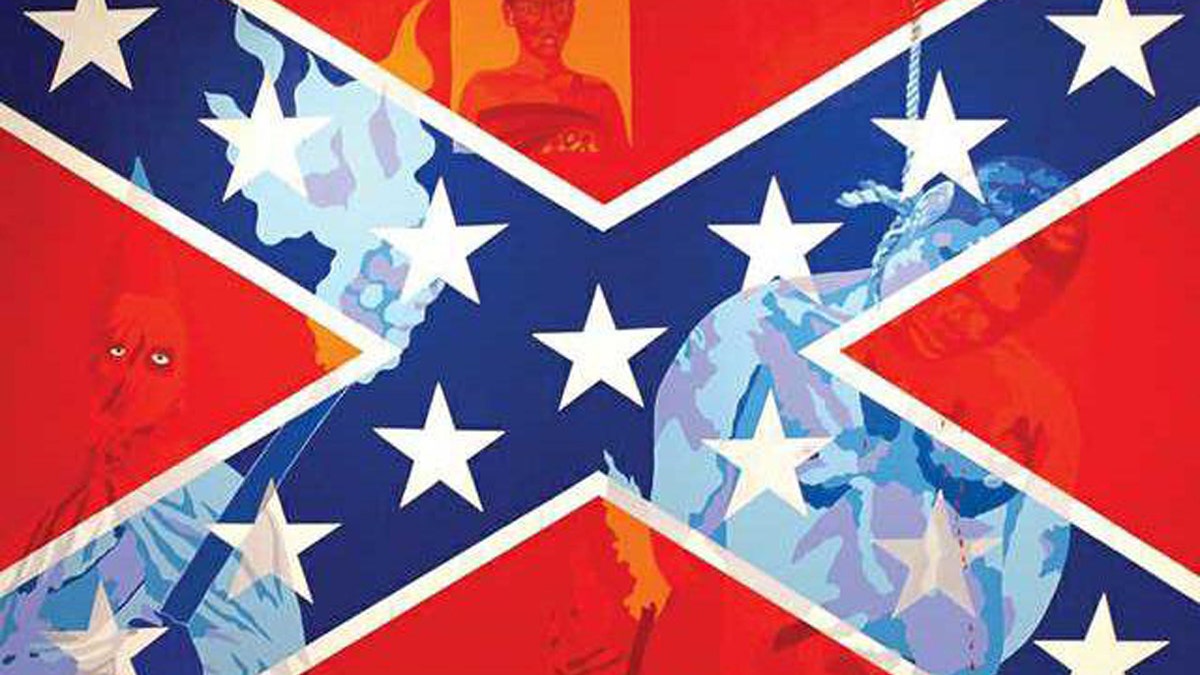
A professor's artwork titled "Heritage?" was removed without his consent because it was deemed "aggressively hostile." (Stanley Bermudez / Gainesville Times)
University of New Hampshire
One display at the University of New Hampshire was removed hours after going up because it was perceived as “hate speech” and contained “profane/vulgar language.” The controversial exhibit was meant to draw attention to Sexual Awareness Month in April 2017, but instead had to be revised. After FIRE reached out to UNH, the university revised its speech codes and now has the highest rating from the free speech organization.
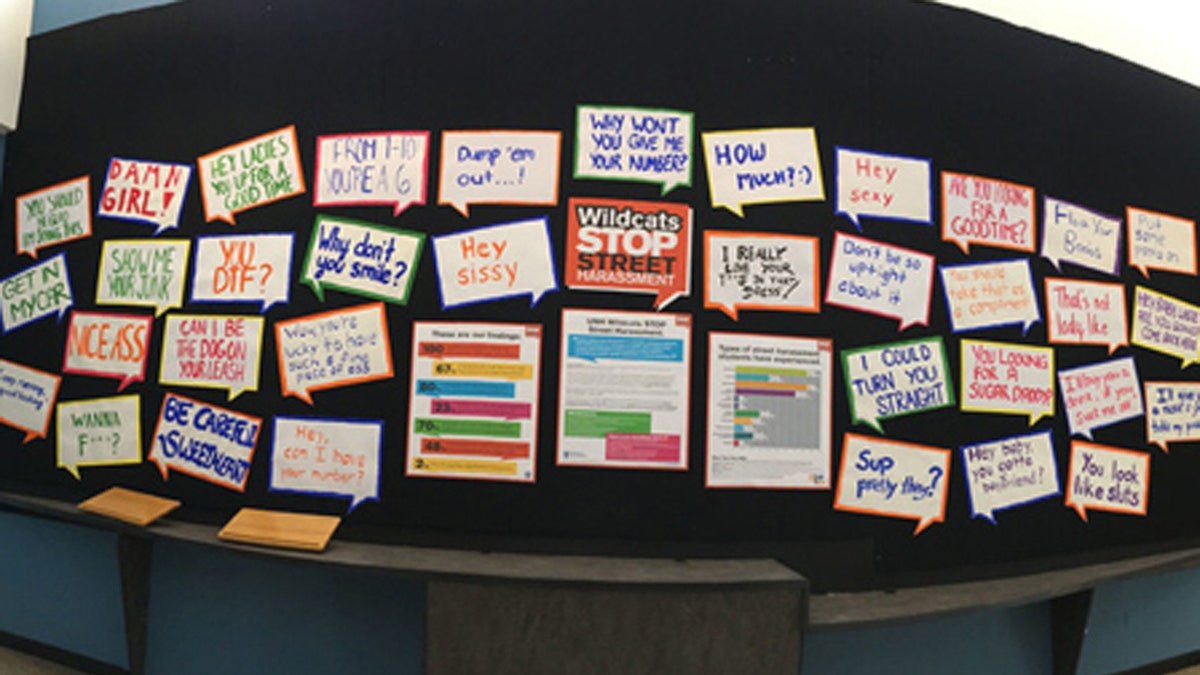
A display intended to highlight Sexual Awareness Month was removed for containing "hate speech." It was later revised. (Connie DiSanto / Huffington Post)
Arcadia University
A vulgar anti-Trump art display titled “Waste Show,” produced by video collective Termite TV and created by Professor Alan Powell and a group of alumni and students, came under fire after a student anonymously filed a Title IX complaint. While the case was eventually dropped, the art display was moved to the basement of the school’s library. It featured tweets, speeches, and recordings of Trump alongside audio and video of Nazi propaganda, as well as a miniature male sex organ intended to look like Trump.
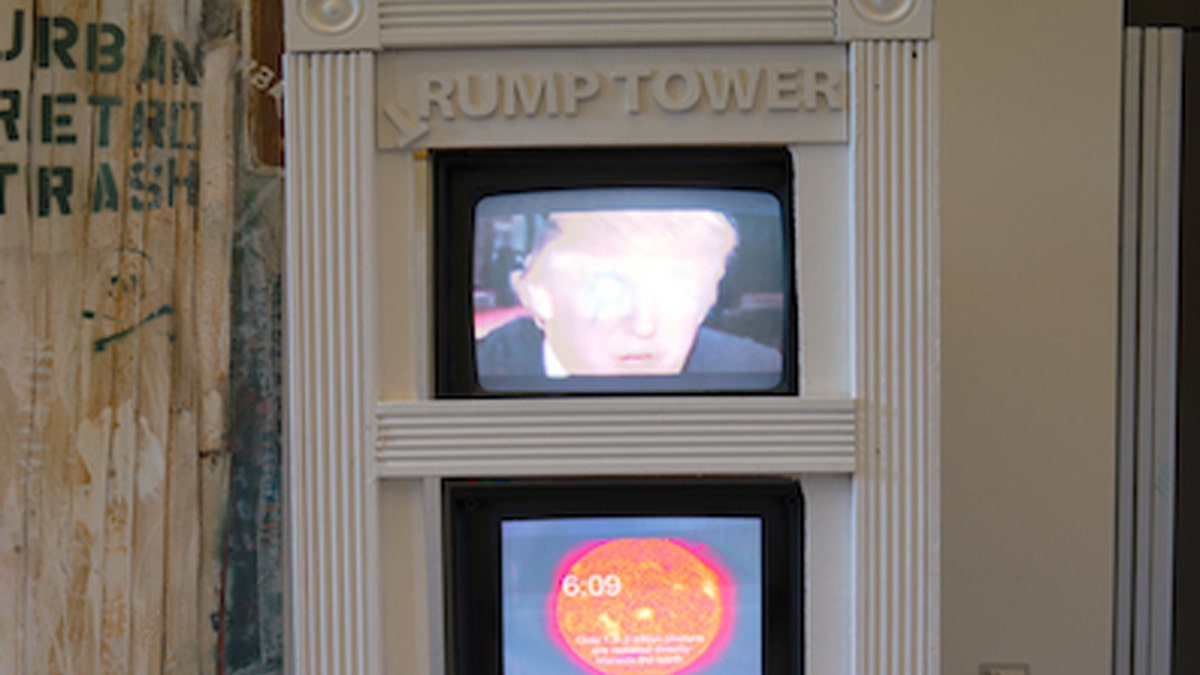
An Arcadia professor's collective project called "Waste Show" was the subject of an anonymous Title IX investigation that was later dropped. (Alan Powell, Termite TV)
Southwestern College
In 2010, a Southwestern College student’s artwork featuring three female professors was rejected because it was too “controversial” for the school’s Women’s History Month art display. The three professors had been suspended and banned for protesting the college’s unconstitutional free speech zone. The student said, “The events that happened…were and are still a part of women’s history…That’s a slap to a lot of people’s faces.”
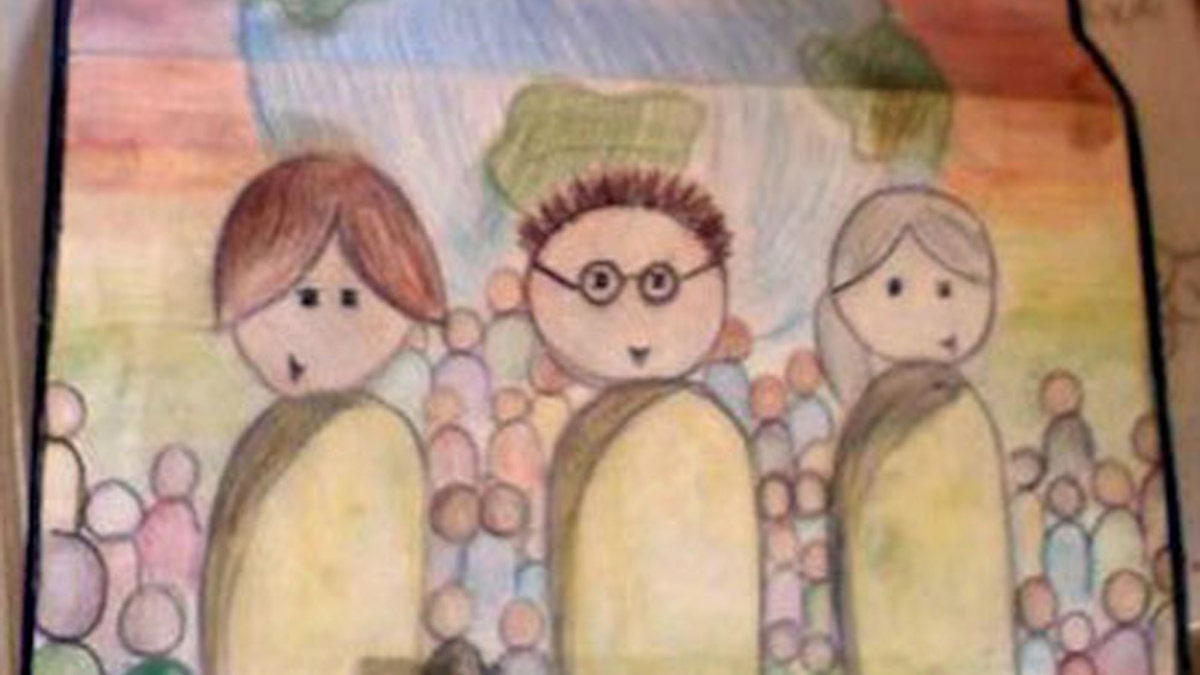
A Southwestern College student's artwork depicting three female professors who were suspended and banned from campus for protesting the free speech zone was rejected for the school's Women's History Month art display. (Saveourswc.com, via Archive.org)
Read the full report from FIRE here.









































